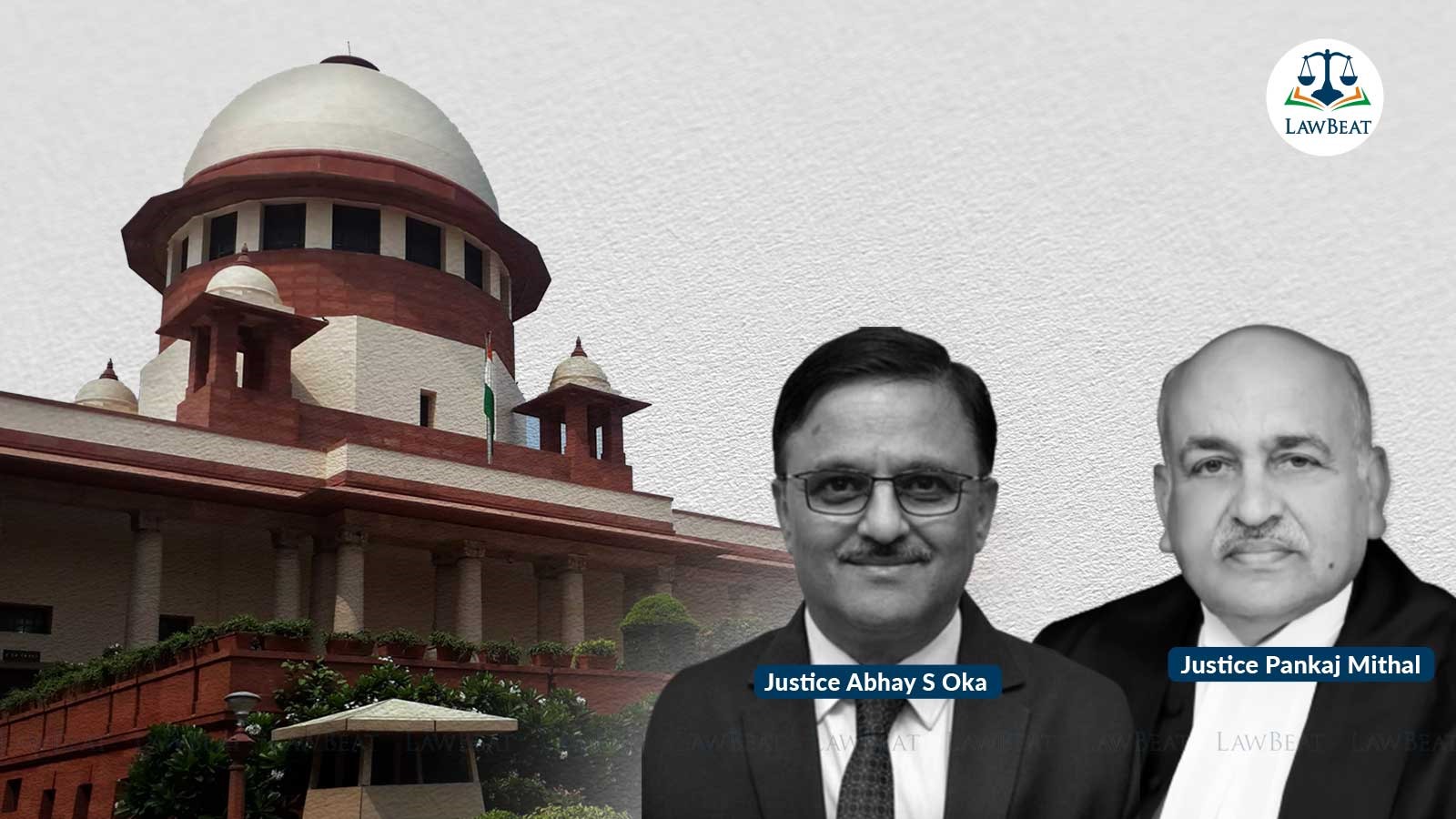Supreme Court rejects review of judgment on criminal conspiracy to become scheduled offence if related to PMLA offence

Court said there was no error apparent on the record and even otherwise, there is no ground for review
The Supreme Court has dismissed a review petition against November 29, 2023's judgment which ruled that the offence of criminal conspiracy punishable under Section 120-B of the Indian Penal Code will become a scheduled offence only if it is related to an offence, specifically included in the Schedule of the Prevention of Money Laundering Act.
A bench of Justices Abhay S Oka and Pankaj Mithal allowed the application for permission to file review petition but rejected the plea for open court hearing in the matter.
"We have perused the judgment and order dated 29th November 2023 which has been sought to be reviewed. There is no error apparent on the record. Even otherwise, there is no ground for review. Review Petitions are dismissed," the bench said.
In its order passed on March 19, the apex court declined to reconsider the judgment.
In the impugned judgment of M/s Alliance University & Anr Vs Pavana Dibbur & Anr, the court had also declared it is not necessary that a person against whom the offence of money laundering under Section 3 of the PMLA is alleged, must have been shown as the accused in the scheduled offence.
The court had then quashed proceedings initiated against Dibbur in Special Court for PMLA cases, Bengaluru on the basis of criminal conspiracy with other accused in buying two properties in Bengaluru.
Enforcement Directorate had submitted that as Section 120-B of IPC is included in Part A to the Schedule, even if the allegation is of making a criminal conspiracy to commit an offence which is not a part of the Schedule, the offence becomes a scheduled offence.
"The offence under Section 120-B of IPC included in Part A of the Schedule will become a scheduled offence only if the criminal conspiracy is to commit any offence already included in Parts A, B or C of the Schedule. In other words, an offence punishable under Section 120-B of IPC will become a scheduled offence only if the conspiracy alleged is of committing an offence which is otherwise a scheduled offence," the court had said.
The bench had also said there are many offences under Chapter XVII of IPC which are not included in Parts A and B, but they become scheduled offences only if those have cross-border implications.
If the argument by the ED is accepted, a conspiracy to commit any offence under any penal law which is capable of generating proceeds, can be converted into a scheduled offence by applying Section 120-B of the IPC, though the offence is not a part of the Schedule, the bench said. "This cannot be the intention of the legislature," it observed.
"If we look at Section 120-B, only because there is a conspiracy to commit an offence, the same does not become an aggravated offence.The object is to punish those involved in conspiracy to commit a crime, though they may not have committed any overt act that constitutes the offence. Conspiracy is an agreement between the accused to commit an offence. If we look at the punishments provided under Section 120-B, it becomes evident that it is not an aggravated offence. It only incorporates the principle of vicarious liability," the bench had added.
The court had then dealt with the legal issue after finding that Supreme Court had in July, 2022 in the Vijay Madanlal Choudhary case could not address this question as it did not arise.
In case of appellant, the bench noted, "In the chargesheets filed in the alleged scheduled offences, there is no allegation of the commission of criminal conspiracy to commit any of the offences included in the Schedule. Except for Section 120-B of the IPC, no other offence in the schedule has been applied. Therefore, in this case, the scheduled offence does not exist at all. Hence, the appellant cannot be prosecuted for the offences punishable under Section 3 of the PMLA."
It also pointed out the first property cannot be said to have any connection with the proceeds of the crime as the acts constituting scheduled offence were committed after the property was acquired.
The issue whether the appellant used tainted money forming part of the proceeds of crime for acquiring the second property can be decided only at the time of trial, the court had said.
